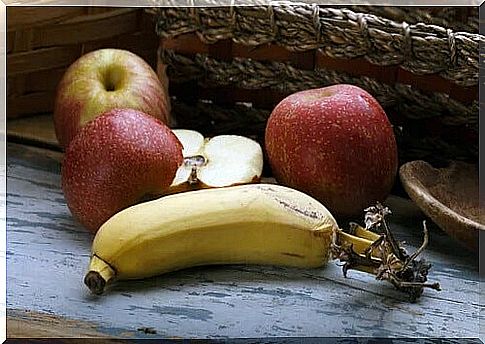Premack’s Principle Can Make Confinement More Bearable

Premack’s principle can make confinement more bearable for several reasons. The first, because we are going to discover an ideal psychological tool to improve our productivity and establish more desirable behaviors. The second, because we will be able to apply it in countless areas of our lives and even in the lives of the children in the house.
Let’s admit it: we’ve seen these past few days, during this exceptional situation, how people are struggling to do a large number of tasks every day. On our social networks there are numerous live programs, videos and posts from friends, acquaintances and extremely active influencers who, when they are not doing some physical activity, cooking or making decorations, are taking a new course.
Of course, each person deals with the situation of confinement in a different way. Everyone fills their time as they wish. But it is just as permissible and beneficial to rest as it is to redecorate the house five days a week.
Whatever your personality or your way of dealing with the current context, using Premack’s principle can be as interesting as it is beneficial. Let’s see why.

Premack’s principle can make confinement more bearable
Before we delve into the reasons why Premack’s principle might make confinement more bearable, it is necessary to clarify first what this theory says and where it comes from. This approach has its origins in operant or instrumental conditioning formulated by psychologist BF Skinner.
His formulation is based on a simple idea: people, and animals too, establish behaviors or stop repeating them based on some psychological dimension that motivates us or causes the extinction of this behavior.
An example: I stopped studying German because I find it boring or too difficult. On the other hand, I’ve been spending more and more time on certain streaming content platforms because I love series.
Well, one thing Premack’s principle seeks is to make these more motivating behaviors work as reinforcers of the less interesting behaviors to encourage their achievement. In other words, I could use my passion for grades as a reward mechanism for studying a few hours of German a day.
This technique, although it seems elementary, is often used to modify behavior and even to treat addictions or phobias . However, we also note some ways in which Premack’s principle can make confinement more bearable for us.
Premack’s Principle for Organizing Time and Creating Routines
A recommendation that is often repeated for dealing with confinement is the need to establish routines. They must be organized at times designed to carry out the obligations and, in turn, others aimed at enjoying moments of leisure and rest.
- Premack’s principle can make confinement more bearable if we organize our schedule by interspersing positive, motivating tasks with others we like less.
- For example, we may experience desolation or apathy shortly after waking up. In this state, it can be very discouraging to start the day doing household chores.
- In this case, Premack’s theory would tell us that the ideal is to start exactly with the least motivating activity, but knowing that we’re going to devote an hour and a half to this work and that, later, we can see a chapter of that series we’re addicted to.
- The same is true for remote work. We should start the day with our professional responsibilities, but considering that in two hours, for example, we will be able to take a short break to do something pleasant, however small.
Premack’s principle for taking care of food
One phenomenon that has emerged because of confinement is snacking during meals or neglecting food. We tend to overindulge in snacks and those products that, in essence, reduce our anxiety but are not nutritious.
Premack’s principle can make confinement more bearable and can be very beneficial in the food field. But in what way? Let’s look at an example.
- Whenever hunger strikes or when we want to eat between meals, we must do the following: let’s get an apple and the other product that we feel like consuming (snacks, chocolate, etc.).
- We should eat the least appetizing first (the apple) and then the most desirable. In this case, as the apple is a food that fills, it is very likely that, after eating it, we no longer want the other food.

Living with children
This theory can also be very useful for organizing children’s time. Premack’s principle can make confinement easier for our children, because it will provide them with greater performance in schoolwork. But in what way?
- Children have an attention span of around 40 or 45 minutes.
- The ideal is to start the day with the most difficult subjects. Following the rule set by principle, they should start doing the tasks knowing that after 45 minutes they can take a break to do something else, more fun, for a few minutes. Ideally, focus on academic activities in the morning and leisure activities in the afternoon. However, during the morning hours dedicated to academic performance, we can introduce fun little activities for them.
As we can see, this type of strategy is based exclusively on the introduction of positive reinforcers. After all, we must consider that this is what we most need right now. If, on top of everything else, such reinforcers also help us organize better time, be more productive, and even eat better, it’s worth a try.









